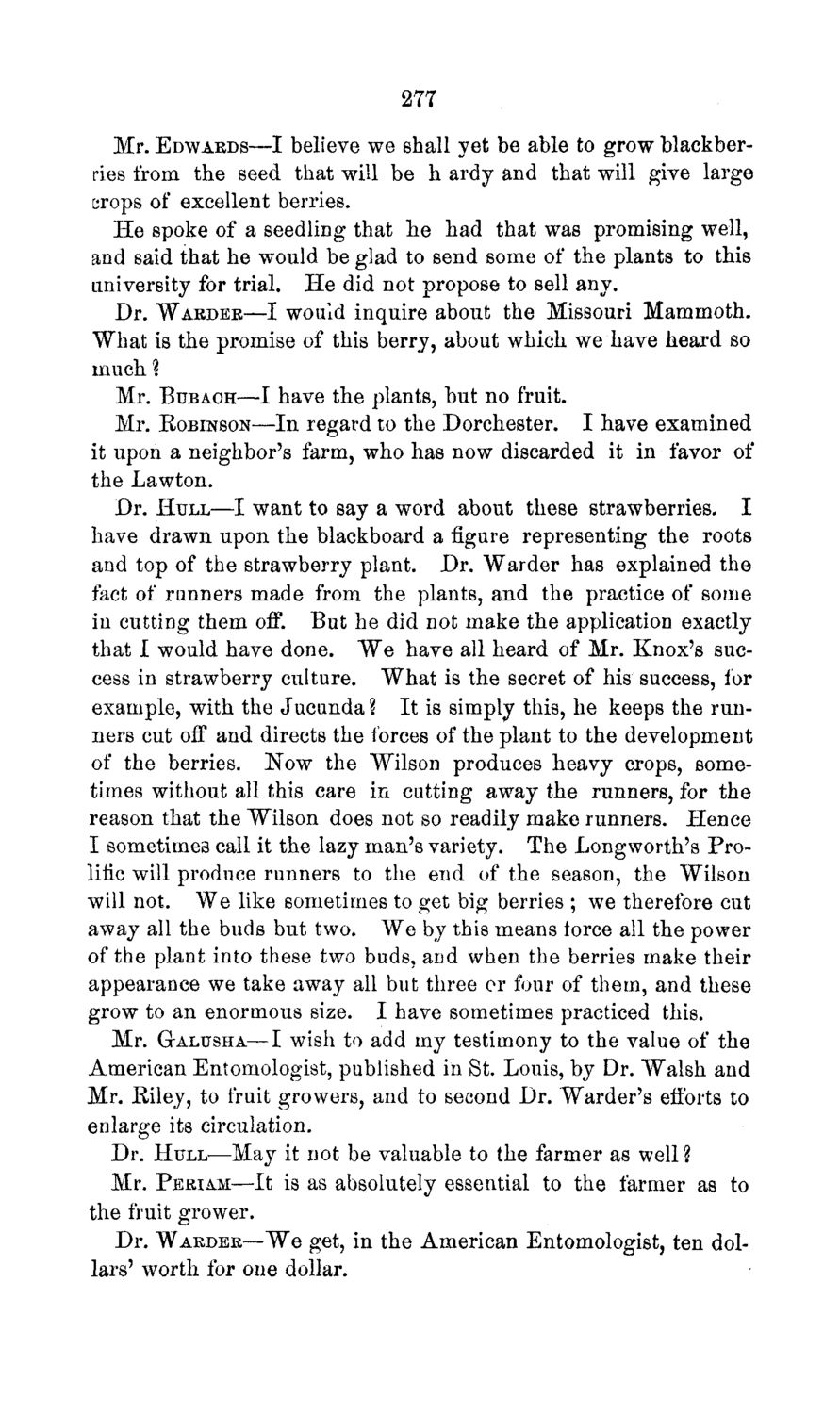| |
| |
Caption: Board of Trustees Minutes - 1869
This is a reduced-resolution page image for fast online browsing.

EXTRACTED TEXT FROM PAGE:
277 Mr. EDWARDS—I believe we shall yet be able to grow blackberries from the seed that will be h ardy and that will give large crops of excellent berries. H e spoke of a seedling that he had that was promising well, and said that he would be glad to send some of the plants to this university for trial. He did not propose to sell any. Dr. WARDER—I would inquire about the Missouri Mammoth. What is the promise of this berry, about which we have heard so much ? Mr. BUBAOH—I have the plants, but no fruit. Mr. ROBINSON—In regard to the Dorchester. I have examined it upon a neighbor's farm, who has now discarded it in favor of the Lawton. Dr. H U L L — I want to say a word about these strawberries. I have drawn upon the blackboard a figure representing the roots and top of the strawberry plant. Dr. Warder has explained the fact of runners made from the plants, and the practice of some in cutting them off. But he did not make the application exactly that I would have done. W e have all heard of Mr. Knox's success in strawberry culture. What is the secret of his success, for example, with the Jucunda ? It is simply this, he keeps the runners cut off and directs the forces of the plant to the development of the berries. Now the Wilson produces heavy crops, sometimes without all this care in cutting away the runners, for the reason that the Wilson does not so readily make runners. Hence I sometimes call it the lazy man's variety. The Longworth's Prolific will produce runners to the end of the season, the Wilson will not. We like sometimes to get big berries ; we therefore cut away all the buds but two. We by this means lorce all the power of the plant into these two buds, and when the berries make their appearance we take away all but three or four of them, and these grow to an enormous size. I have sometimes practiced this. Mr. GTALUSHA—I wish to add my testimony to the value of the American Entomologist, published in St. Louis, by Dr. Walsh and Mr. E-iley, to fruit growers, and to second Dr. Warder's efforts to enlarge its circulation. Dr. HULL—May it not be valuable to the farmer as well? Mr. PERIAJVI—It is as absolutely essential to the farmer as to the fruit grower. Dr. WARDER—We get, in the American Entomologist, ten dollars' worth for one dollar.
| |